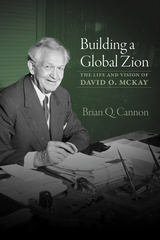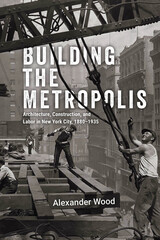3 books about Durham, David I.
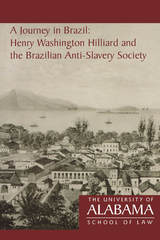
A Journey in Brazil
Henry Washington Hilliard and the Brazilian Anti-Slavery Society
David I. Durham and Paul M. Pruitt Jr.
University of Alabama Press, 2008
A Journey in Brazil: Henry Washington Hilliard and the Brazilian Anti-Slavery Society is an investigative account of the vital career of Henry Washington Hilliard, who had a long and complicated relationship with slavery. A native Southerner, he was a former slave owner and Confederate soldier, but as a member of Congress Hilliard strongly opposed secession. Hilliard supported the constitutional legality of slavery; however, as a moderate he acknowledged the status quo and warned of the dangers of radical positions concerning the issue.
Throughout a diverse career that spanned six decades, Hilliard’s personal challenges, moderated by his faith in Divine Providence, eventually allowed him to return to his ideological roots and find a sense of redemption late in life by becoming an unlikely spokesman for the Brazilian emancipation movement through his association with Joaquim Nabuco. In A Journey in Brazil, authors David I. Durham and Paul M. Pruitt Jr. establish context for Hilliard’s beliefs, document his journey in Brazil, and offer a variety of primary documents—selections from newspapers, transcripts of letters, translations of speeches, and other documents that have never before been published.
AboutOccasional Publications of the Bounds Law Library
This collection offers a series of edited documents that contribute to an understanding of the development of legal history, culture, or doctrine. Series editors Paul M. Pruitt Jr. and David I. Durham have selected a variety of materials—a lecture, diaries, letters, speeches, a ledger, commonplace books, a code of ethics, court reports—to illustrate unique examples of legal life and thought.
Throughout a diverse career that spanned six decades, Hilliard’s personal challenges, moderated by his faith in Divine Providence, eventually allowed him to return to his ideological roots and find a sense of redemption late in life by becoming an unlikely spokesman for the Brazilian emancipation movement through his association with Joaquim Nabuco. In A Journey in Brazil, authors David I. Durham and Paul M. Pruitt Jr. establish context for Hilliard’s beliefs, document his journey in Brazil, and offer a variety of primary documents—selections from newspapers, transcripts of letters, translations of speeches, and other documents that have never before been published.
AboutOccasional Publications of the Bounds Law Library
This collection offers a series of edited documents that contribute to an understanding of the development of legal history, culture, or doctrine. Series editors Paul M. Pruitt Jr. and David I. Durham have selected a variety of materials—a lecture, diaries, letters, speeches, a ledger, commonplace books, a code of ethics, court reports—to illustrate unique examples of legal life and thought.
[more]
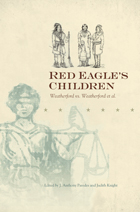
Red Eagle's Children
Weatherford vs. Weatherford et al.
Edited by J. Anthony Paredes and Judith Knight
University of Alabama Press, 2012
Red Eagle’s Children presents the legal proceedings in an inheritance dispute that serves as an unexpected window on the intersection of two cultural and legal systems: Creek Indian and Euro-American.
Case 1299: Weatherford vs. Weatherford et al. appeared in the Chancery Court of Mobile in 1846 when William “Red Eagle” Weatherford’s son by the Indian woman Supalamy sued his half siblings fathered by Weatherford with two other Creek women, Polly Moniac and Mary Stiggins, for a greater share of Weatherford’s estate. While the court recognized William Jr. as the son of William Sr., he nevertheless lost his petition for inheritance due to the lack of legal evidence concerning the marriage of his biological mother to William Sr. The case, which went to the Alabama Supreme Court in 1851, provides a record of an attempt to interrelate and, perhaps, manipulate differences in cultures as they played out within the ritualized, arcane world of antebellum Alabama jurisprudence.
Although the case has value in the classic mold of salvage ethnography of Creek Indian culture, Red Eagle’s Children, edited by J. Anthony Paredes and Judith Knight, shows that its more enduring value lies in being a source for historical ethnography—that is, for anthropological analyses of cultural dynamics of the past
events that complement the narratives of professional historians.
events that complement the narratives of professional historians.
Contributors
David I. Durham / Robbie Ethridge / Judith
Knight / J. Anthony Paredes / Paul M. Pruitt
Jr. / Nina Gail Thrower / Robert Thrower /
Gregory A. Waselkov
David I. Durham / Robbie Ethridge / Judith
Knight / J. Anthony Paredes / Paul M. Pruitt
Jr. / Nina Gail Thrower / Robert Thrower /
Gregory A. Waselkov
[more]
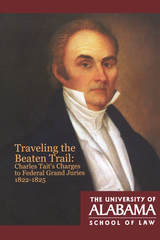
Traveling the Beaten Trail
Charles Tait's Charges to Federal Grand Juries, 1822–1825
Paul M. Pruitt Jr., David I. Durham, and Sally E. Hadden
University of Alabama Press, 2013
In Traveling the Beaten Trail: Charles Tait’s Charges to Federal Grand Juries 1822–1825, a concise and essential addition to the Occasional Publications of the Bounds Law Library, authors Paul M. Pruitt Jr., David I. Durham, and Sally E. Hadden capture the life, achievements, and legacy of federal judge Charles Tait. Throughout his colorful career, Tait left an unmistakable impression on Alabama politics. He had a major influence over the federal bar and its practice, and he also made it his personal responsibility to educate the public. Traveling the Beaten Trail offers a brief biographical account of Charles Tait’s life, highlighting various noteworthy events, such as the array of professions he undertook—from professor, to planter, to lawyer, to senator. The remainder of the text focuses on in-depth analyses of Tait's grand jury charges for 1822, 1824, and 1825.
About Occasional Publications of the Bounds Law Library
This collection offers a series of edited documents that contribute to an understanding of the development of legal history, culture, or doctrine. Series editors Paul M. Pruitt Jr. and David I. Durham have selected a variety of materials—a lecture, diaries, letters, speeches, a ledger, commonplace books, a code of ethics, court reports—to illustrate unique examples of legal life and thought.
About Occasional Publications of the Bounds Law Library
This collection offers a series of edited documents that contribute to an understanding of the development of legal history, culture, or doctrine. Series editors Paul M. Pruitt Jr. and David I. Durham have selected a variety of materials—a lecture, diaries, letters, speeches, a ledger, commonplace books, a code of ethics, court reports—to illustrate unique examples of legal life and thought.
[more]
READERS
Browse our collection.
PUBLISHERS
See BiblioVault's publisher services.
STUDENT SERVICES
Files for college accessibility offices.
UChicago Accessibility Resources
home | accessibility | search | about | contact us
BiblioVault ® 2001 - 2025
The University of Chicago Press


